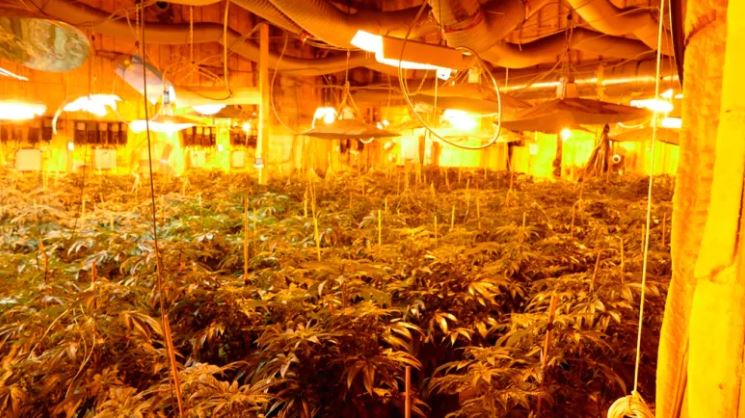You are here
Home 🌿 Medical Cannabis News 🌿 What you need to know to start a legal cannabis grow-op 🌿What you need to know to start a legal cannabis grow-op

If Yellowknife's Jason Harker is successful in his quest to get a licence to produce cannabis, he'll become one of the first people to enter the industry in the Northwest Territories, if not the entire North. CBC News looked into what exactly a person needs to do in order to receive approval to run a grow-op in Canada.
What do I need to do to get licensed?
Shirley Toms, a regulatory consultant who works for Cannabis Compliance Inc., compares the process to a "4D matrix." Here's what's in that matrix:
- Health Canada needs security clearance for key staff members, including the master grower, head of security, quality-control, and somebody named as the "responsible person" — essentially, a CEO.
- RCMP will take a deep dive into five years of their history: past addresses, international travel and a criminal record check, including fingerprints.
- The proposed facility will also be scrutinized, including its floor plan and security details that outline camera placements, physical barriers, access controls for entries and exits and an intrusion detection system.
- Record-keeping will also be scrutinized.
- Health Canada will likely come back with requests for more information about certain details of the applications it sees.
- Applicants will eventually need to produce an evidence package, which shows you've turned those plans into brick and mortar.
- The federal government will need to see municipal officials have approved any development or zoning permits associated with the business.
- Officials want to see two crops, to make sure the product reaches an acceptable level twice in a row.
Why is the process so complicated?
The government is legitimizing a former black-market industry, and regulating a product that is not only widely consumed, but consumed by many vulnerable Canadians.
"You have everybody from someone with immune system issues because they're undergoing chemo or HIV therapy … or a little kid with epilepsy," said Toms.
"You really want to set the bar to be appropriate so that when people consume this stuff it's consistent — it's not going to make them unwell because of something like mycotoxins, or microbial counts that are stupid, or chemical hazards."
I have a criminal record. Do I stand a chance?
That depends.
The Liberal government recently announced its offering pardons for people with simple possession convictions, so this type of record could become less of a problem than one might think.
"They're not looking for a reason to just exclude you," said Toms.
"But if you have a record, that's going to be a glitch. They don't say that's an automatic barrier, but they say they're going to have to look at it on a case-by-case basis."
The government also considers the role everybody will play in the proposed operation.
"If you're just an investor with one per cent [of shares], you're not going to make a difference. But if you are a big Kahuna, yeah, it could make a difference," said Toms.
How long does the process take?
Every application is different. Simple amended applications, where medical grow-ops want to sell recreationally, could take three or four months. A brand new standard application could take as long as 18 months.
What's coming over the horizon?
The more applications Health Canada sees, the more it's learning about what requirements are effective and what can be relaxed a bit, said Toms.
For example, the government used to require cannabis be stored in a vault with a certain thickness of walls, and had intense camera requirements.
"They had cameras on every leaf, on every plant," said Toms.
"Now they have cameras on the doors so people who go in and out are monitored.
"If something goes wrong on the inside, you know who went in and who went out. You don't have to monitor every plant [because] that was kind of ridiculous, right?"
420 Intel is Your Source for Marijuana News
420 Intel Canada is your leading news source for the Canadian cannabis industry. Get the latest updates on Canadian cannabis stocks and developments on how Canada continues to be a major player in the worldwide recreational and medical cannabis industry.
420 Intel Canada is the Canadian Industry news outlet that will keep you updated on how these Canadian developments in recreational and medical marijuana will impact the country and the world. Our commitment is to bring you the most important cannabis news stories from across Canada every day of the week.
Marijuana industry news is a constant endeavor with new developments each day. For marijuana news across the True North, 420 Intel Canada promises to bring you quality, Canadian, cannabis industry news.
You can get 420 Intel news delivered directly to your inbox by signing up for our daily marijuana news, ensuring you’re always kept up to date on the ever-changing cannabis industry. To stay even better informed about marijuana legalization news follow us on Twitter, Facebook and LinkedIn.




